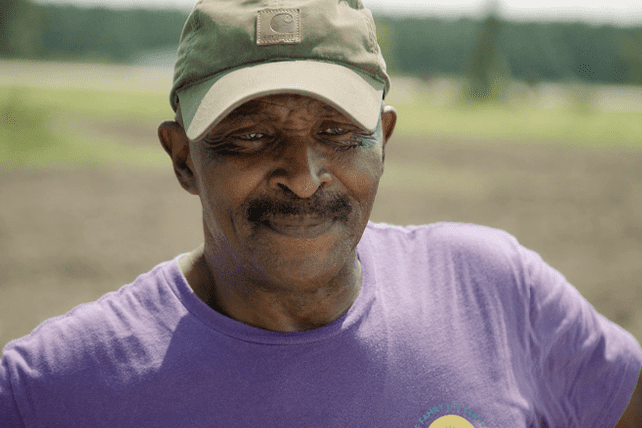CONETOE, N.C. (RNS) — Congregants at Conetoe Chapel Missionary Baptist Church thought their pastor was crazy when he suggested his rural community take up farming as a way to improve their health and become more self-sufficient.
The small, predominantly Black community, about 80 miles east of Raleigh, is surrounded by vast, fertile farmland but has no grocery store for miles around. According to figures from the Census Bureau, 67% of the residents of Conetoe (pronounced Kuh-NEE-tuh) live below the poverty line.
It turned out, the Rev. Richard Joyner was prophetic. The venture, which in 2007 was spun off into its own nonprofit, the Conetoe Family Life Center, now produces 1,500 boxes of vegetables a week on land it either bought or leases. It partners with multiple outfits including public schools, hospitals, the North Carolina Food Bank and local churches to plant, grow, harvest and package the produce, some of which is sold, but most of which is donated.
Funerals, which Joyner used to conduct too many of, are less common, and the health and wellbeing of his congregants who partake of the vegetables, grown without any synthetic chemicals, has improved, he said.
But now Joyner has another problem. Last month, Hurricane Helene flooded some of his fields, wiping out the late August plantings of salad greens, radishes and beets. The soil was already wet from weeks of rain when the hurricane blew in, dumping 17 inches of rain over a two week period. Back in 2016, Hurricane Matthew also flooded the nonprofit’s fields.
Members of Joyner’s congregation, about 100 people, have suggested maybe God is trying to tell him something.
“We’re in the Bible Belt,” Joyner said. “When my farm floods, people go, ‘Well, God don’t want you to do that. That’s why he keeps flooding it and you need to stop being hard-headed.’”
Joyner’s new rejoinder: “God is not flooding the land. Our behavior is destroying the environment. That’s what flooded the land.”
Over the last few years, the 71-year-old pastor has become not only a farmer but a climate change activist. Last month, he lent his name to a new group, Extreme Weather Survivors, which provides trauma-informed support for people harmed by natural disasters. Some of the group’s members, including Joyner, participated in a Climate Week forum in New York City earlier this month intended to convey the message that extreme weather should not be labeled an “act of God” but an “act of Man.”
Speakers such as Delta Merner, a scientist at the Union of Concerned Scientists, testified that in North Carolina studies have shown that climate change has significantly increased heavy rainfall. In other spots, such as Arizona, she said, science can now show a connection between climate change and record-breaking heat waves, which have become more frequent and intense.
Merner, who studies “attribution science,” a field that aims to determine how much human-caused climate change has directly influenced extreme weather events, said researchers are now able to trace climate change back to major fossil fuel producers and cement manufacturers.
Explaining this to church members has not always been easy, but Joyner now sees it as his calling.

